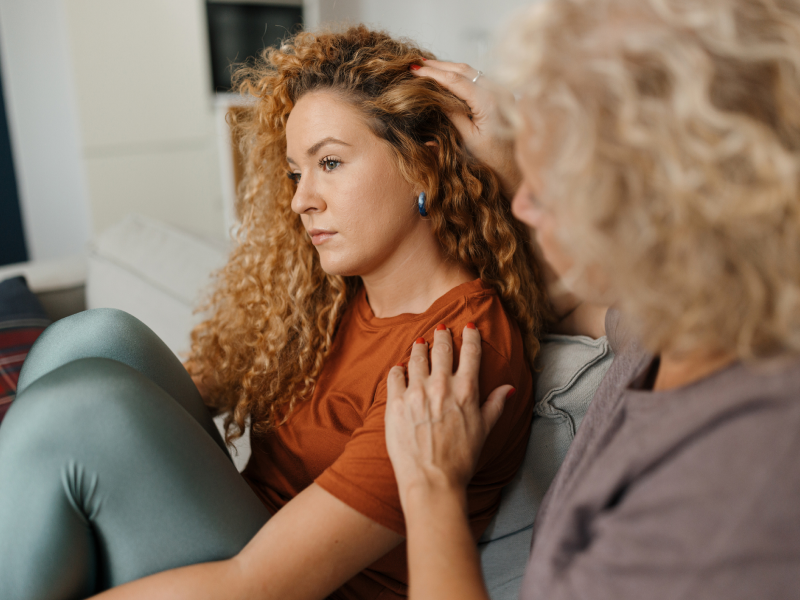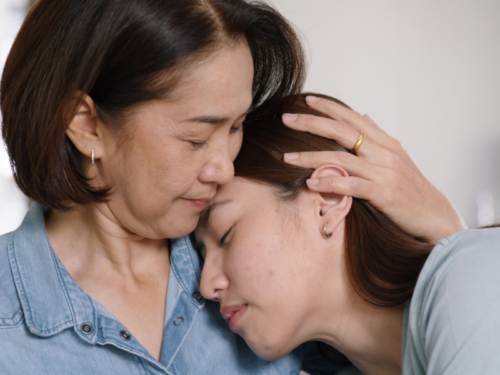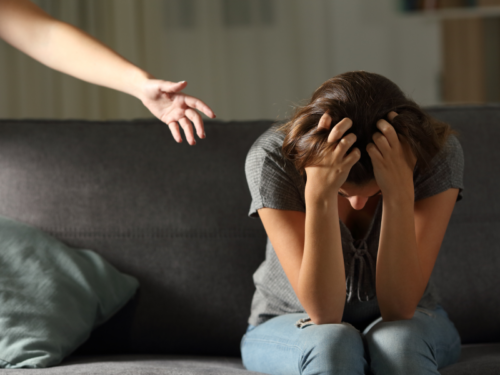
Table of Contents
Here’s What Actually Causes OCD to Get Worse—And Why

Written By: Alex Bachert, MPH

Clinically Reviewed By: Sarah Lyter
October 16, 2024
5 min.
Discover four reasons your OCD may be getting worse, as well as how to improve your mental well-being.
Learn more about our Clinical Review Process
Table of Contents
Obsessive-compulsive disorder (OCD) is a mental health condition involving obsessions and compulsions. Obsessions are intrusive and recurring thoughts, images, or urges that can cause people to engage in repetitive behaviors intended to reduce anxiety or distress. Specific OCD symptoms typically vary from person to person, but some of the most common obsessions include fears, doubts, and unwanted taboo thoughts. For example, someone with a fear of germs may compulsively wash their hands.
Although treatment makes OCD manageable for many people, it’s still possible for certain factors to exacerbate your OCD symptoms or cause the condition to worsen over time. An OCD episode, also known as an OCD spike or OCD attack, is when a person experiences a notable increase in the frequency and severity of their symptoms. Read on to learn more from experts about common risk factors that can worsen OCD and how to cope with OCD symptoms or an OCD episode.

If your OCD is getting worse, we can help
Virtual, intensive treatment for OCD.
What causes OCD to get worse?
Similar to most psychiatric illnesses, there are certain risk factors that can cause a person’s OCD to get worse. “Environmental stressors, substance abuse, and hormonal fluctuations such as in the context of pregnancy or postpartum periods” can all contribute to a change in symptoms,” says Claire Streeter, Psychiatric Mental Health Nurse Practitioner with Charlie Health. Here are a few factors to consider if your OCD symptoms seem to have gotten worse.
1. Stress
Stress and trauma have both been identified as potential risk factors for worsening OCD symptoms. And, some research even suggests that people are more likely to develop certain OCD symptoms, such as fear of contamination, if they’ve experienced multiple stressful life events.
2. Substance use
When people use substances like drugs, alcohol, or even prescription medications to cope with intrusive thoughts, it can actually make their OCD worse. Substance use can impair cognitive functioning, hinder your control of compulsions, and interfere with your prescribed treatment plan.
3. Pregnancy
Pregnancy may intensify symptoms of OCD and anxiety, according to some research. The exact cause is unknown, but it may be due to greater stress and anxiety or an increase in progesterone and other hormones.
4. Sleep
People with OCD may be more likely to experience insomnia and other sleep issues, which can be problematic since sleep disturbances may exacerbate some OCD symptoms. The National Sleep Foundation suggests that adults get 7-9 hours of sleep each night, while teens ages 14-17 years should aim for 8-10 hours per night.
Signs that your OCD is getting worse
OCD episodes may look different from person to person, but it’s usually pretty clear when a person’s symptoms have taken a turn for the worse. “More frequent and distracting obsessions or intrusive thoughts” are considered a sign of worsening OCD, says Streeter. She adds that “feeling like it is extremely difficult or impossible to not engage in compulsions, and these things interfering with day-to-day functioning” are also signs that your OCD may be getting worse.

Other common signs of an OCD episode include:
- Spending a significant amount of time engaging in compulsions
- Feeling unable to control your thoughts or behaviors despite efforts to resist them
- Experiencing extreme distress due to OCD obsessions and compulsions
What causes OCD?
According to Streeter, risk factors for OCD include:
- Family history of OCD
- Having another psychiatric disorder, such as generalized anxiety disorder or major depressive disorder
- Having a history of trauma
- Certain structural and neurochemical differences in the brain
- Certain temperaments, such as traits of perfectionism
How to manage your OCD during difficult periods
If you notice that your OCD is becoming more difficult to cope with or causing significant distress, it’s best to get support right away. “Seek help from family, friends, and especially professionals,” says Streeter. “Talk to a therapist or psychiatric provider about treatment options, including psychotherapy and medication,“ she explains.
Talk therapy
Talk therapy is considered an effective treatment for anxiety disorders like OCD. Techniques like cognitive behavioral therapy (CBT) can help you understand how and why your symptoms have changed. With the support of your therapist, you can learn to identify specific situations, people, or environments that trigger your obsessions and compulsions. Therapy can also help you break free of cognitive distortions like catastrophizing that negatively influence your perception of reality.
Medication
Some people benefit from using antidepressants like selective serotonin reuptake inhibitors (SSRIs) to manage symptoms and improve daily functioning. If you notice worsening symptoms or changes to your mood, speak with your healthcare provider about starting medication or adjusting your existing dose.
Lifestyle modifications
A person’s daily choices often have a direct impact on their mental and emotional health. If you notice your OCD is getting worse, consider any lifestyle changes you can make to help reduce anxiety and improve your well-being. Regular exercise, a balanced diet, and healthy sleep habits are at the top of the list. You might also consider mindfulness exercises, as well as mental health journaling, to help you identify triggers and process emotions.
Support groups
Group therapy and support groups are a useful way to connect with others who share similar experiences, especially when it comes to managing a mental health condition like OCD. Although it can be scary when your obsessive thoughts or compulsive behaviors become more severe, sharing your experience with those who understand what you’re going through can be a source of comfort. Support groups are also a great opportunity to develop new coping techniques and strategies for avoiding triggers and managing symptoms.

How Charlie Health can help
If you or someone in your life is struggling with obsessive-compulsive disorder (OCD), know that help is available. Charlie Health’s virtual Intensive Outpatient Program (IOP) offers more than once weekly therapy for people living with complex mental health conditions, including OCD, OCD episodes, and anxiety disorders.
Our expert clinicians incorporate evidence-based therapies into individual therapy, group sessions, and family therapy to provide people with the tools to manage their intrusive thoughts and compulsive behavior, especially when they need help the most. Fill out the form below or give us a call to start your healing journey today.
References
https://link.springer.com/article/10.1007/s00737-023-01315-2
https://www.sciencedirect.com/science/article/abs/pii/S2352250X19301411
https://bmcpsychiatry.biomedcentral.com/articles/10.1186/s12888-021-03038-z
https://pmc.ncbi.nlm.nih.gov/articles/PMC7744562/
https://pmc.ncbi.nlm.nih.gov/articles/PMC5841259/
https://adaa.org/learn-from-us/from-the-experts/blog-posts/consumer/unexpected-ocd-postpartum




